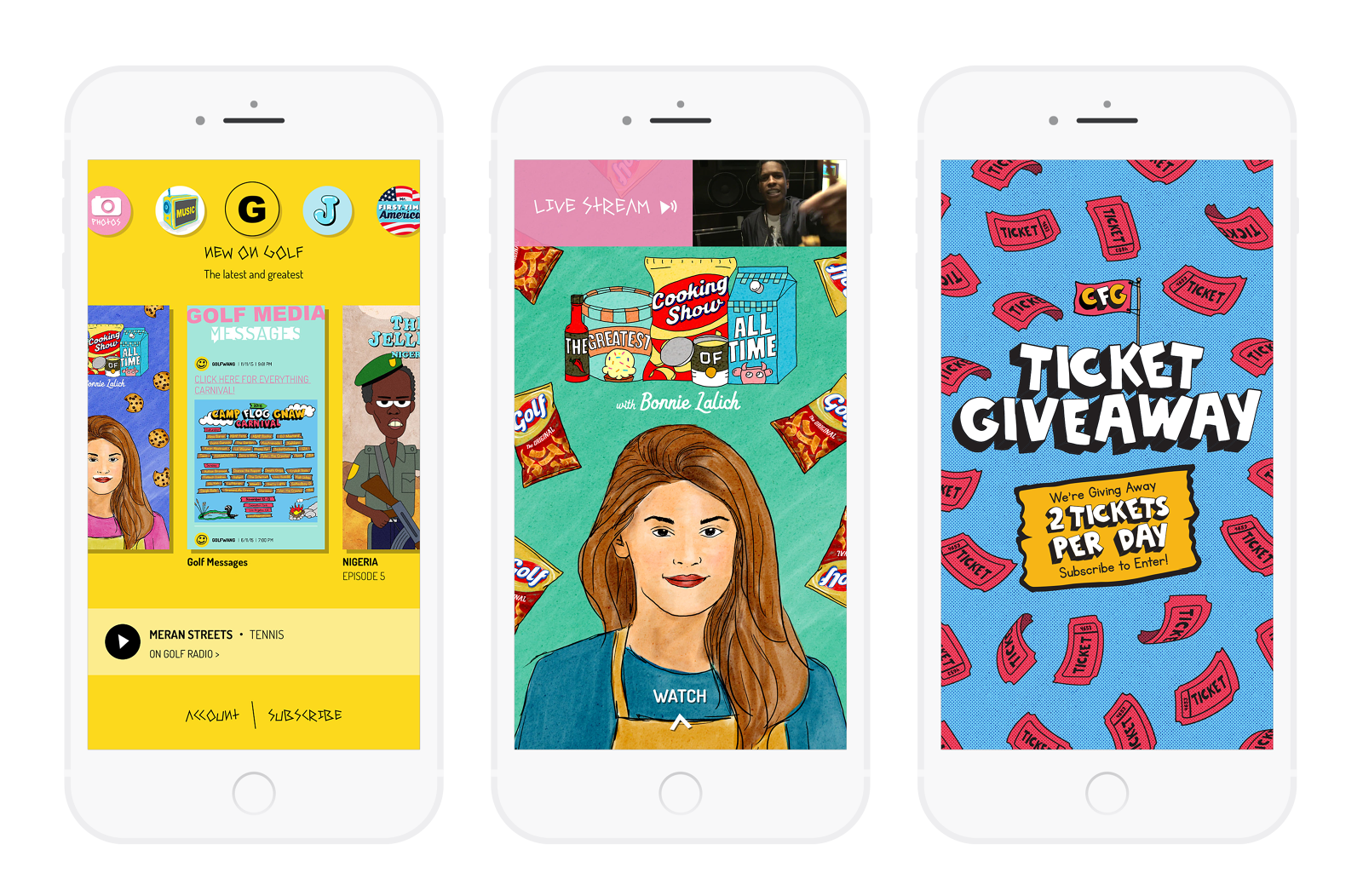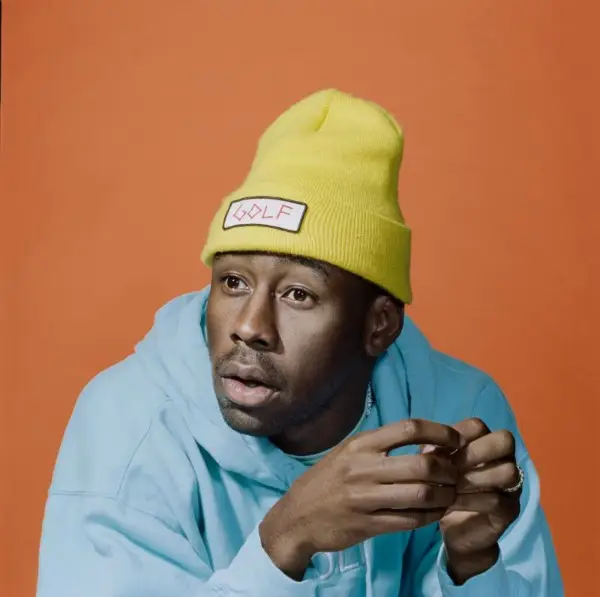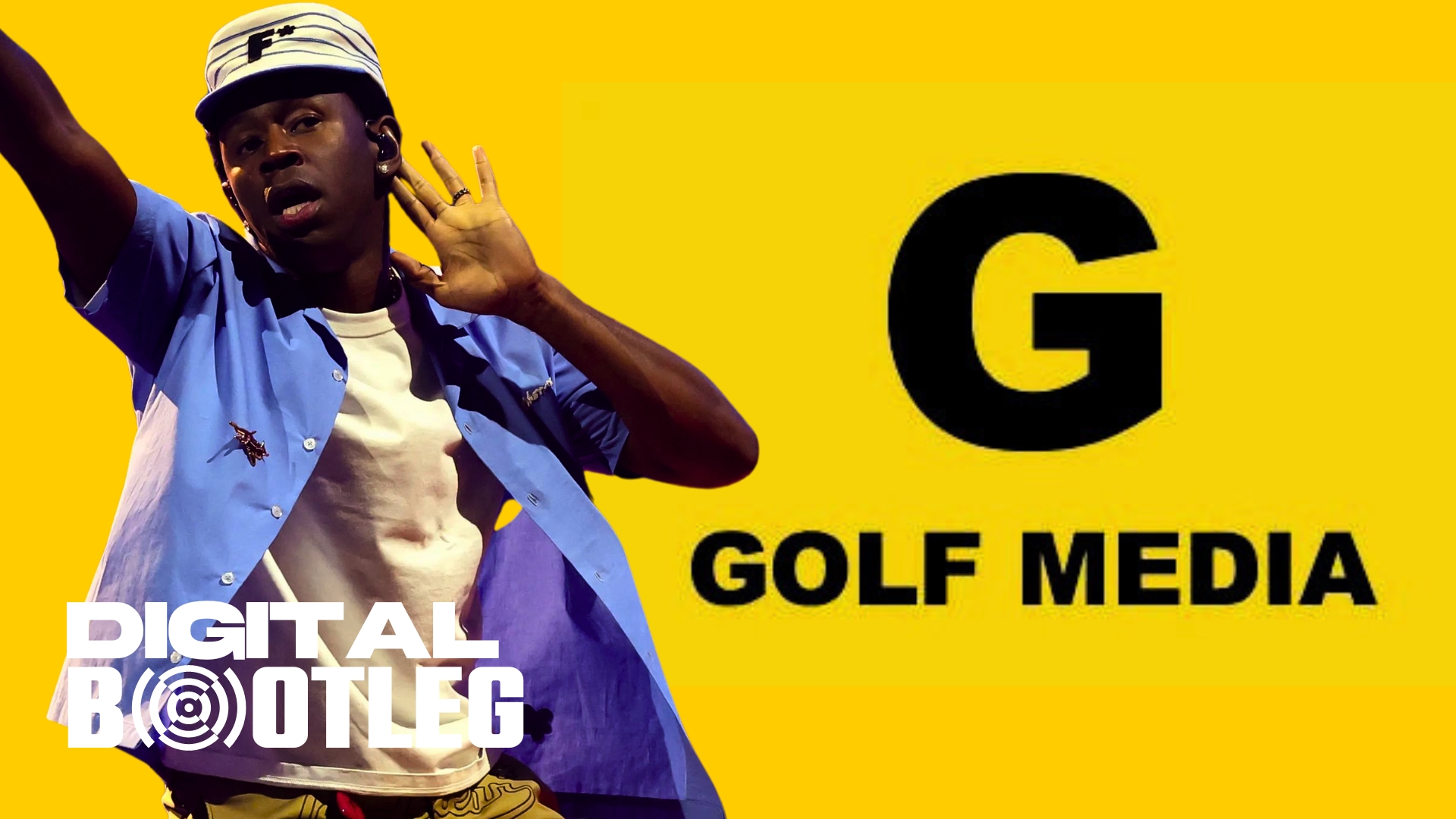In 2015, Tyler, The Creator launched Golf Media, an app meant to reflect his brain directly—raw and unfiltered. Imagine a wild mix of original series, exclusive content, crazy livestreams, and even a printed magazine. Golf Media was like a blend of MTV, Cartoon Network, and a giant Tumblr, all merged under Tyler’s constant quest for cultural revolution. But in 2018, it abruptly ended. And, let’s be honest, it’s a huge loss for both fans and the industry.
The App That Didn’t Cure Asthma, But Came Close
From its launch, Golf Media promised “everything except curing asthma,” according to Tyler. And honestly, it wasn’t far from the truth. For just $5 a month, you accessed a world where Tyler played with the boundaries of entertainment. Offbeat series like The Greatest Cooking Show of All Time, bizarre shows with even weirder names (EatDatPussy445, really?), and of course The Jellies, an animated show co-written by Tyler himself. This wasn’t just a simple streaming service. It was a pure, raw extension of Tyler, The Creator’s brand—a creative lab where his wild ideas took shape, with no care for pleasing everyone.
A Bold and Creative Branding Strategy
From a marketing perspective, Tyler nailed it. In an era where artists desperately try to escape the clutches of streaming platforms, Golf Media was a risky, yet incredibly smart move. By creating an independent platform, he cut out the “middlemen” that eat away at creators’ earnings. As his manager Christian Clancy put it: “We’d rather be guinea pigs than rearrange chairs on the Titanic.” That’s the whole point of the project: Tyler wasn’t just about making money (though the $5 monthly fee wasn’t free). He wanted a space where he could be himself without compromise. And for his fans, that was a dream come true.

Why the Shutdown of Golf Media Is an Economic Tragedy
So, why did Golf Media shut down in 2018? Officially, no explanation was given. But from a business standpoint, it’s almost criminal that this idea factory was stopped. Tyler had created a platform with a viable economic model. At a time when Netflix and Amazon are burning billions to produce content, Golf Media operated on modest but efficient production, all while maintaining an intimate connection with a niche of ultra-loyal fans. The app’s shutdown leaves a massive gap, not just in terms of creative content but as an alternative economic model for artists.
The Untapped Potential of Golf Media
What makes Golf Media’s demise even more frustrating is the enormous potential we missed out on. Imagine if the app had evolved in today’s media ecosystem, where artists are trying to break free from the grip of major labels and streaming giants. Tyler had understood something before anyone else: the future belongs to creators who own their content. Not just their music, but everything that comes with it—videos, shows, merchandise, interactive experiences. Golf Media wasn’t just an extension of his art, it was his own channel, his own universe.
Today, artists like Beyoncé, Kanye West, and even Travis Scott are obsessed with the idea of total control over their image and products. They create events, immersive experiences, exclusive content. Tyler had already done it in 2015. And yet, instead of flourishing, Golf Media was buried too soon. Tyler wanted to create “his own MTV or Cartoon Network.” We were just a few clicks away from seeing that dream become reality.

A Marketing Model Ahead of Its Time
The disappearance of Golf Media not only deprived fans of unique content, but also erased a marketing and economic model that could have inspired a generation of artists. At a time when every new Netflix series costs millions and social media is flooded with cloned influencers, Tyler had found a way to connect directly with his community without the stifling rules of the industry.
As an app, Golf Media was a playground where anything was possible, where every idea could become a series, a sketch, or a weird radio show. But what made it special was Tyler’s absolute authenticity. No big budgets, no famous actors. Just ideas, friends, and a camera. Tyler used his own name and reputation to push his universe further, turning every piece of content into part of his global branding. And it worked.
Tyler, The Misunderstood Visionary
The most ironic part is that Golf Media died right when the entertainment industry needed such an initiative the most. We live in an era where authenticity has become the new currency. Streaming platforms and social media are increasingly criticized for their lack of transparency and disconnection from real creative voices. Tyler, with his app, offered an alternative: a space where the creator controlled everything, where interaction with fans was direct and unfiltered.
Today, we constantly talk about “content creators” and “creative economies.” We search for sustainable monetization models for artists who don’t want to be swallowed by big platforms. Yet, Golf Media had found the formula almost a decade ago. Tyler, a visionary, had anticipated the industry’s evolution, but it seems the world wasn’t ready for his revolution. Maybe it was too avant-garde, or simply too personal for a broader audience. But the result remains: the app is no more, and the industry continues to stumble.
The End of an Era? Not Really.
Golf Media was more than just an app; it was a statement. Tyler, The Creator has always been ahead of the curve. By launching Golf Media, he offered an alternative to the established models, standing against the giant platforms that crush creativity with algorithms. His irreverent tone, dark humor, and freewheeling shows were a cry for independence in an industry obsessed with numbers. But in the end, like many avant-garde projects, the lack of immediate profitability probably played a role. One thing is clear: the day Golf Media died, a part of Tyler’s dream died with it. And with it, one of the most refreshing experiments in the music and media industry.
What We Lost With the End of Golf Media
In 2018, when Golf Media officially shut down, we lost much more than just an app. We lost a rare example of creative independence in an industry dominated by algorithms and short-term profit. We lost the chance to see how far Tyler could have taken his concept, and to discover what he could have brought to the ever-evolving media landscape.
Today, we look back and realize we may have missed a turning point. Golf Media could have been a model of artistic independence, a counterweight to the big platforms that now dictate what we consume. Instead, we are left with an industry that recycles the same concepts over and over, desperately searching for something authentic.
So, why do we regret the death of Golf Media? Because it was more than just a crazy project by Tyler, The Creator. It was a groundbreaking idea that captured the essence of unconstrained creativity. A space where the boundaries between artist and spectator disappeared. And today, in a world where authenticity has become a rare commodity, the loss of Golf Media hurts even more.











